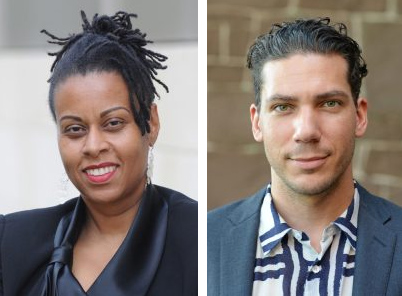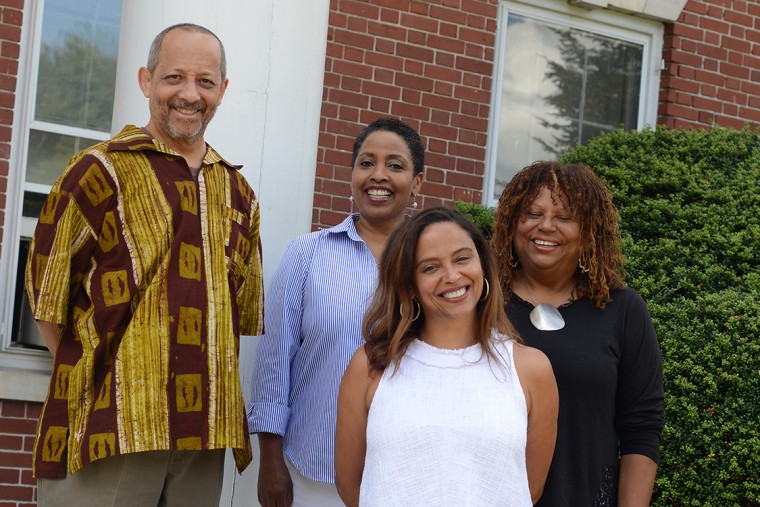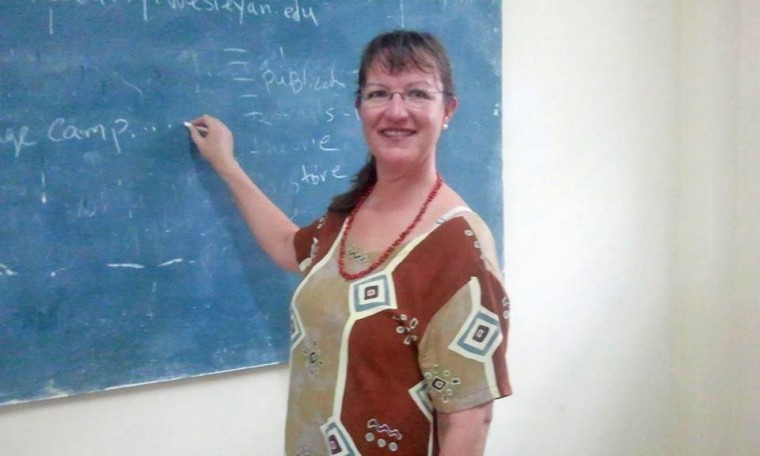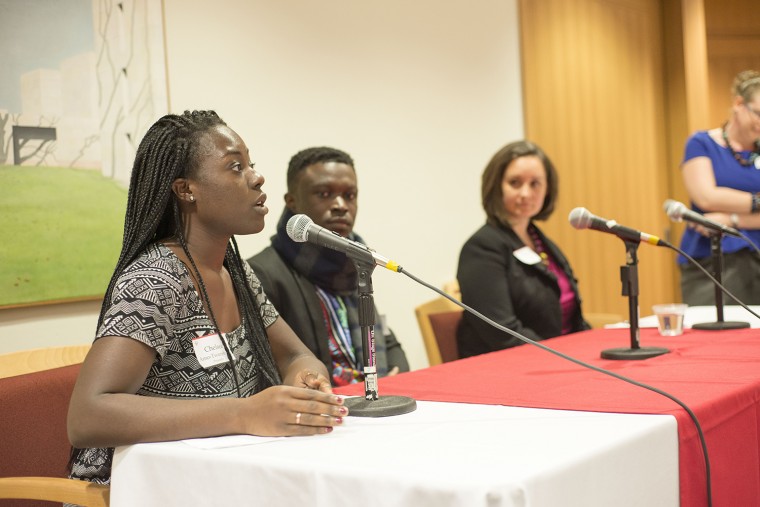This fall, the African American Studies Program hired its first core faculty members. They include Kali Nicole Gross, professor of African American studies, and Khalil Anthony Johnson Jr., assistant professor of African American studies. Wesleyan opened the Afro American Institute in 1969 and offered minimal courses on African American history. In 1983, students could major in African American studies, but it wasn’t until 2008 that the university created the African American Studies Program. Now the program is poised to make institutional history by African American Studies gaining departmental status, which would put Wesleyan on par with other top-tier universities and colleges.…
Kali Nicole Gross, professor of African American studies, writes in The Huffington Post about the case of Korryn Gaines, the latest death of an African American at the hand of police. Gaines was fatally shot after a five-hour standoff with police and SWAT officers in Maryland, and had prophesied her own demise during an earlier traffic stop, in which she had also been defiant. While Gaines' behavior may once have appeared irrational, and possibly a sign of mental illness, Gross writes, "after these and so many other deaths of black women and men killed during minor traffic stops, killed for selling loose cigarettes, or…
In its recent meeting, the Board of Trustees conferred tenure on four faculty members. They are Associate Professor of Government Erika Franklin Fowler, Professor of African American Studies Kali Gross, Associate Professor of English and American Studies Amy Tang, and Associate Professor of Chemistry Erika Taylor. They join eight other faculty members who were awarded tenure earlier this spring. One faculty member, Louise Neary, was promoted to adjunct associate professor of Spanish. In addition, six faculty members are being promoted to full professor: J. Kehaulani Kauanui, professor of American Studies and anthropology Matthew Kurtz, professor of psychology Cecilia Miller, professor of…
Professor of Religion Elizabeth McAlister is the author of a new paper, "The Militarization of Prayer in America: White and Native American Spiritual Warfare" published Jan. 4 in the Journal of Religious and Political Practice. In the article, McAlister examines how militarism has come to be one of the generative forces of the prayer practices of millions of Christians across the globe. She focuses on the articulation between militarization and aggressive forms of prayer, especially the evangelical warfare prayer developed by North Americans since the 1980s. Against the backdrop of the rise in military spending and neoliberal economic policies, spiritual warfare evangelicals…
Professor of Religion Elizabeth McAlister spoke to The Guardian about the state of the Vodou religion in Haiti today. “Most Americans don’t know that they don’t know what Vodou really is,” said McAlister, who specializes in Haitian Vodou. The article describes the actual practice of Vodou, and discusses its critical place in Haiti's history as the first black republic. And turning to McAlister for her expertise, it addresses Vodou's stance on homosexuality. “Many, many gays and lesbians are valued members of Vodou societies,” explains McAlister, who has devoted years to researching LGBT in Haitian religion. “There is an idea that Vodou spirits that are thought to…
#THISISWHY This year, four Wesleyan faculty are coordinating a year-long interdisciplinary project that enables students from an array of majors and academic disciplines to collaborate, create and work together as a learning community under the theme "Renaissance Projects: Reclaiming Memory, Movement and Migration." The Collaborative Clusters Initiative of the Allbritton Center enables faculty from a variety of departments and programs to develop a shared research project with a unifying theme. Cluster courses in 2015-16 provide perspectives from dance, music, English, and African American studies on the ways performance practices have engaged the past and present in the face of great…
Elizabeth McAlister, professor of religion, professor of African American studies, professor of American studies, spoke at DePaul University on May 11. The topic of her talk was "American Evangelical Spiritual Warfare and Vodou in Haiti." According to the flyer for the talk, one strand of American evangelicalism practices so-called "spiritual warfare" in which Christian "prayer warriors" pray against "territorial strongholds." This group believes the world to be mapped into either Christian or demonic space, where Satanic forces operate as "strongholds" of evil. They believe that Haiti is under the influence of Satan. McAlister draws on recent ethnographic fieldwork in Haiti to…
Gina Athena Ulysse, associate professor of anthropology, associate professor of African America studies, wrote an article, "Presumed Innocent: On Bill Traylor's Verve," which appeared on the website Anthropology Now. Ulysse reflects on an exhibit at the American Folk Art Museum by Bill Traylor, a former slave who began drawing at the age of 85, and produced his entire body of work in three years.
Gina Athena Ulysse, associate professor of anthropology, associate professor of African American studies, wrote a review of artist Robert Pruitt's Women, currently on exhibit at the Studio Museum of Harlem, in the Huffington Post. The exhibit features 20 portraits of contemporary black women drawn on brown butcher paper with conté-crayons. Ulysse writes: "Although, Pruitt's Women may be warriors, they are not embattled. They may be of and in struggle, yet they are not fighting. Their serenity is too often denied to black women. They are 'keepin' it surreal' inhabiting Suzanne Césaire's state of permanent readiness for the Marvelous."
For its 2013 Americas Forum, Wesleyan’s Center for the Americas is commemorating the centenary of Aimé Césaire, éminence grise of the Francophone Caribbean. Taking place on April 5-6 at Russell House, the annual symposium brings scholars and artists from "north" and "south" into dialogue about Césaire, who was not only a regional figure but also a global presence as an intellectual, poet, artist and politician. Celebrating his influential life, spanning from the movements of Surrealism and Negritude to his ideas on decolonization and spiritual and cultural pan-Africanism, the Americas Forum is also an intellectual consideration of Césaire’s contributions to our…
On a chilly January morning in 1978, Jesse Jackson delivered a rousing keynote address to a large group of political leaders. Energized from a recent meeting with President Jimmy Carter at the White House, the civil rights activist dazzled his audience with nearly an hour of political "gospel rock." At the end of Jackson’s fiery speech, his audience launched a five-minute standing ovation. Oddly, his audience was a group of white Republicans. Why would a liberal civil rights activist – with ties to the Democratic Party – engage a political party that had a reputation for turning its back on…





